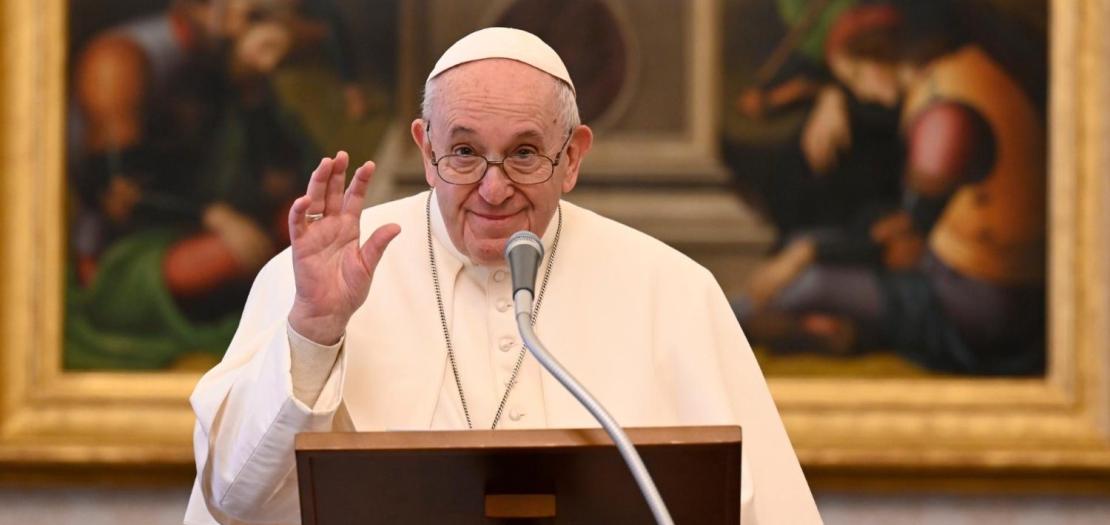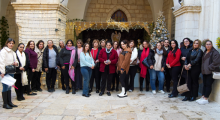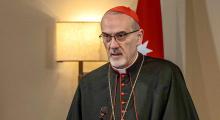Issued by the Catholic Center for Studies and Media - Jordan. Editor-in-chief Fr. Rif'at Bader - موقع أبونا abouna.org

In his 2025 Communications message marking the World Day of Social Communications, Pope Francis stressed that journalists and media people focus in their work on “personal and collective responsibility towards others” and bear hope in a world characterized by “disinformation and polarization, as a few centers of power control an unprecedented mass of data and information.”
A statement issued by the Catholic Center for Studies and Media (CCSM) on January 25, stated that in his annual message issued on January 24 and carried the title, “Share with gentleness the hope that is in your hearts,“ the Pope urged journalists and workers in the field of media to strive to “disarm communication’ as well as to be witnesses and supporters to non-hostile media that spreads the culture of help, a culture of care, build bridges, and convey message full of hope.
In a statement issued by CCSM Director Fr. Dr. Rif’at Bader--who is currently in the Vatican to participate in a meeting of young journalists and directors of Catholic media centers marking the Jubilee Year with the participation of 138 countries--said that the Pope highlighted at the beginning of his message this year two disturbing phenomena. The first one is that many means of communication no longer generate hope, but rather despair, bias, hatred and fanaticism, and use words like a sword, sometimes resorting to false or deliberately distorted information to spread messages aimed at provocation, incitement and abuse.
Fr. Bader added, as for the other troubling phenomenon which Pope Francis referred to as “programmed dispersion of attention” and according to the logic of the market, the digital systems end up undermining the foundations of our existence as community, our ability to join in the pursuit of the common good, to listen to one another and to understand each other’s point of view, whereby it seems that identifying “enemies” to lash out against them verbally when we disregard their individuality and dignity in order to mock and deride them, we also lose the possibility of generating hope.”
In light of these digital challenges, the Pope says that he “dreams of a communication capable of making us fellow travelers, walking alongside our brothers and sisters and encouraging them to hope in these troubled times. A communication capable of speaking to the heart, arousing not passionate reactions of defensiveness and anger, but attitudes of openness and friendship. A communication capable of focusing on beauty and hope even in the midst of apparently desperate situations, and generating commitment, empathy and concern for others. A communication that can help us in recognizing the dignity of each human being, and in working together to care for our common home as well as that does not peddle illusions or fears, but is able to give reasons for hope.” He also called for spreading the messages of mercy and hope as well as closeness and showing mercy towards the suffering and the marginalized.
He concluded his address to journalists saying, “Make room for the heartfelt trust that, like a slender but resistant flower, does not succumb to the ravages of life, but blossoms and grows in the most unexpected places. It is there in the hope of those mothers who daily pray to see their children return from the trenches of a conflict, and in the hope of those fathers who emigrate at great risk in search of a better future. It is also there in the hope of those children who somehow manage to play, laugh and believe in life even amid the debris of war and in the impoverished streets of favelas.”
 Amid 'fragile’ ceasefire, Caritas Jerusalem seeks to 'replant hope' in Gaza this Christmas
Amid 'fragile’ ceasefire, Caritas Jerusalem seeks to 'replant hope' in Gaza this Christmas  Jordan: Union of Religious Congregations holds meeting to meditate the mystery of Incarnation
Jordan: Union of Religious Congregations holds meeting to meditate the mystery of Incarnation 




